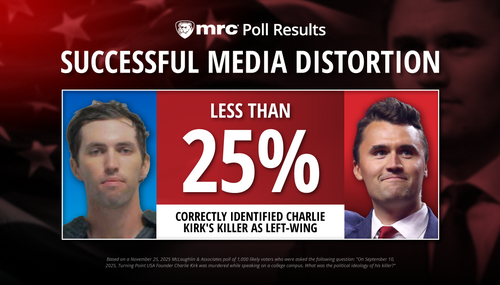 The Politico reports that former ABC News reporter Geoff Morrell is going to be named the new spokesman for the Pentagon. The Politico’s Mike Allen reports that the idea of picking a working journalist like Morrell was that of Defense Secretary Robert Gates, “in an effort to improve press relations at a time when the administration is under pressure to show progress in Iraq.”
The Politico reports that former ABC News reporter Geoff Morrell is going to be named the new spokesman for the Pentagon. The Politico’s Mike Allen reports that the idea of picking a working journalist like Morrell was that of Defense Secretary Robert Gates, “in an effort to improve press relations at a time when the administration is under pressure to show progress in Iraq.”Back in 1993, the Clinton administration also selected an ABC journalist, Kathleen deLaski, as its on-air Pentagon spokesman. At the time, an MRC review found deLaski’s reporting for ABC was “in step with Clintonite thinking that ‘tax and spend’ equals caring.” For more, see “deLaski’s Defensive Detail” in the August 1993 MediaWatch.
When President Bush wanted a media professional to boost his White House publicity machine, he hired Tony Snow, a polished performer with solid conservative credentials. Geoff Morrell is no Tony Snow.
While Morrell was generally a solid weekend reporter for ABC, he occasionally served up liberal conventional wisdom as fact. Last year, Morrell voiced “surprise” that the students at Kent State University were showing “indifference” toward the Iraq war. A few months earlier, he profiled anti-war Democratic candidate Paul Hackett, who blasted President Bush as a “chicken hawk” and “the biggest threat to America.” Morrell generously labeled those mean-spirited attacks as bursts of “candor” — “If elected, Hackett says he'll use that same candor to educate Congress about what's really going on in Iraq.”
Here’s how MRC's Brent Baker wrote up some of Morrell’s ABC reporting. The record suggests he definitely has not been auditioning for a job with the Bush administration:- On February 26, 2006, ABC devoted a story to lamenting the apathy at Kent State, a hotbed of anti-Vietnam war protests, toward the war in Iraq. Reporter Geoff Morrell passed along an all too common smear of war supporters as he contended that "many are reluctant to speak out against it for fear of being called unpatriotic." In his World News Tonight piece, Morrell fretted that the "indifference" toward the war "is surprising at this school, a hotbed of anti-war protests during Vietnam, and still popular with liberals."
Comments from left-wing students dominated Morrell's piece, such as one who charged: "It's an act of modern day imperialism, where America is going to other countries and moving, trying to expand its borders to take over other countries and use them for economic resources." Morrell even found a vet, who "fought in Iraq and Afghanistan," who became "totally disillusioned." The vet-turned-student declared: "I think it's an unjust war." Morrell touted how "the 25 year-old enrolled at Kent State, hoping he could reinvigorate its anti-war movement," but he disappointingly found only apathy.
- Several media outlets on couldn't resist trumping up President Bush's motorcade passing by Cindy Sheehan's protest camp. On the August 12, 2005 World News Tonight, ABC's Geoff Morrell relayed how "the President's motorcade passed by Cindy Sheehan en route to a $2 million Republican fund-raiser" and asked Sheehan: "Are you disappointed he didn't stop?" Morrell also pointed out how "in the eleven days Mr. Bush has been on vacation, at least 37 troops have been killed in Iraq."
- On July 31, 2005, Morrell recited how anti-war Democratic congressional candidate Paul Hackett denounced President Bush as a "chicken hawk" and "the biggest threat to America," but instead of describing that as mudslinging, Morrell called it "candor," relaying: "If elected, Hackett says he'll use that same candor to educate Congress about what's really going on in Iraq."
- Right before Bush's second inaugural, on January 16, 2005, Morrell focused on how "some" are upset by a "lavish" inaugural in the midst of a war. ABC anchor Terry Moran teased at the top of that Sunday's World News Tonight: "In a time of war and natural disaster, is it time for a lavish celebration?" Correspondent Morrell proceeded to relay the complaints of one anti-war activist and a rich sports owner who had voted for Bush. Without mentioning how FDR was near-death at the time, Morrell contrasted Bush with how "during World War II Franklin Roosevelt opted not to have a parade or a party — just a White House swearing in followed by a small luncheon of chicken salad and pound cake."




